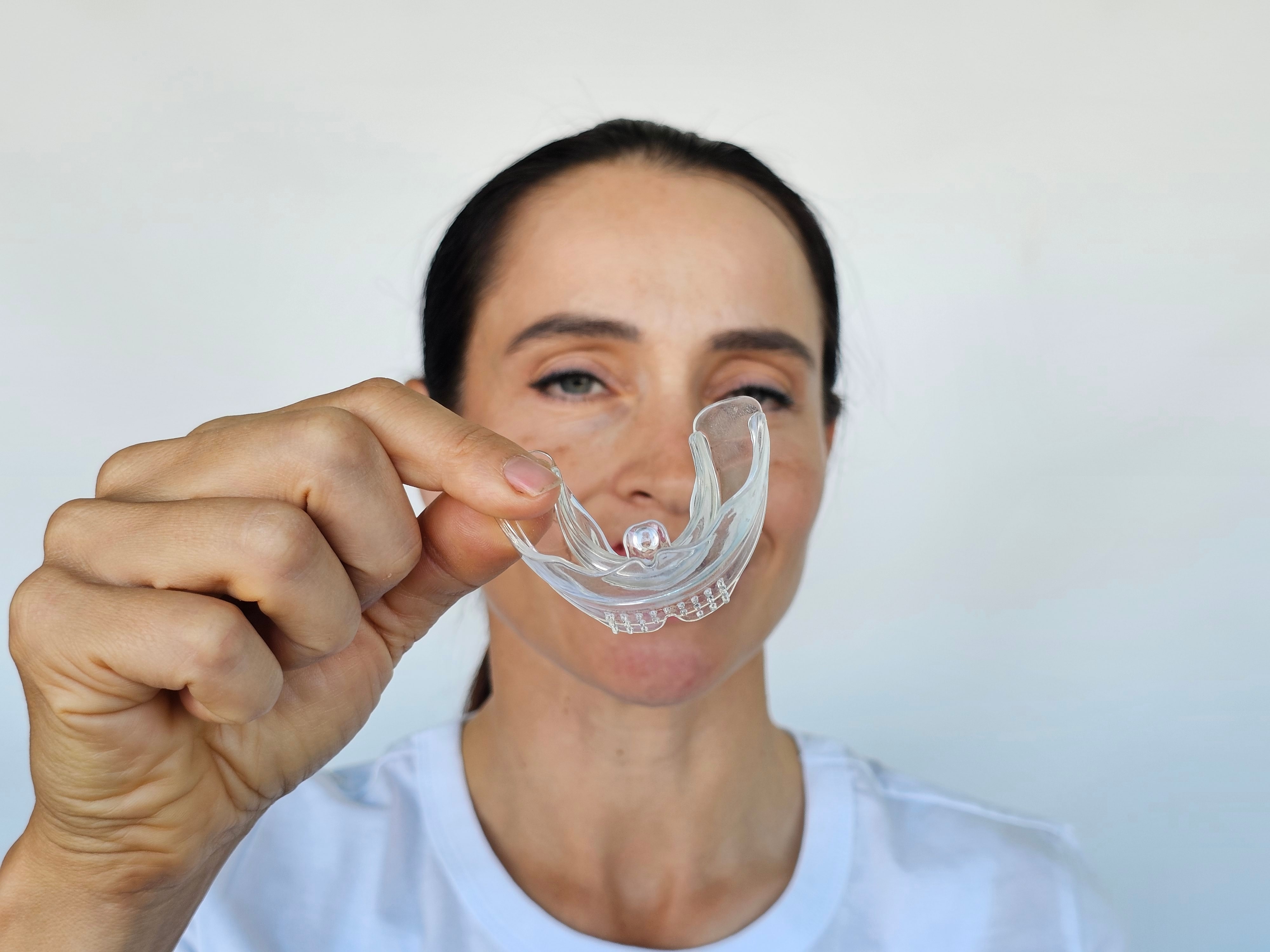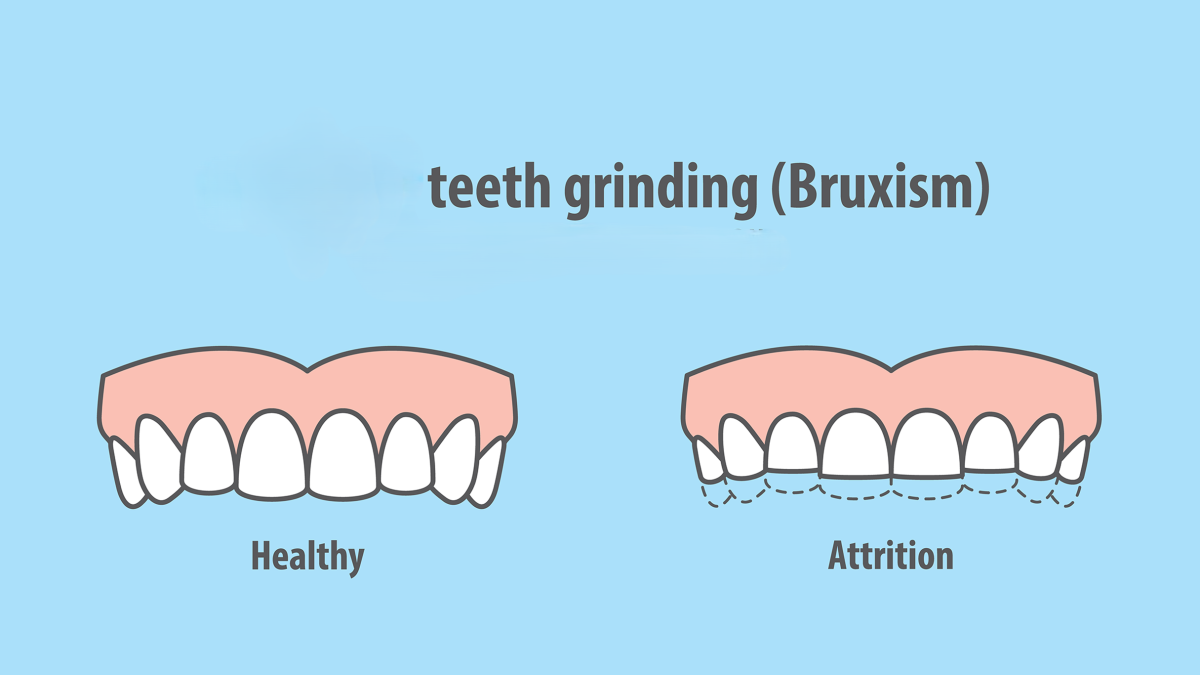purple plum aesthetics blog
Bruxism (Teeth Grinding): Causes & Treatment Options

Bruxism is a condition where people grind their teeth or clench their jaws, either during sleep or while awake. This repetitive muscle activity can cause jaw pain, tooth wear, and long-term oral health issues if not managed properly. If you experience frequent clenching or teeth grinding, you may benefit from specialized care available through Advanced Dentistry in Falls Church, Virginia, US or Airway Sleep Dentistry, which can help address the underlying causes and restore comfort. Whether your condition stems from sleep disorders, stress, or bite alignment, early intervention helps protect your teeth and improves sleep quality.

What Is Bruxism
Bruxism is a sleep-related movement disorder that causes involuntary tightening of the jaw muscles. While occasional grinding may not cause harm, frequent or severe bruxism can result in tooth damage, strain on the jaw joint, and persistent facial pain.
Sleep bruxism often appears alongside sleep disorders such as obstructive sleep apnea or poor sleep hygiene, whereas awake bruxism usually occurs due to mental health challenges, stress, or deep concentration.
Causes and Risk Factors
Bruxism develops from multiple influences including lifestyle, health conditions, and emotional state. Recognizing these risk factors is key to finding an appropriate treatment approach.
1. Stress and Psychosocial Factors
Emotional tension often leads people to clench their jaw or grind their teeth unconsciously. Over time, this constant muscle activity results in morning jaw pain, facial pain, and enamel wear.
2. Sleep Disorders and Sleep Quality
Many with sleep-related bruxism also struggle with sleep apnea or obstructive sleep apnea. These sleep disorders disrupt normal rest, leading to brief awakenings that trigger jaw clenching. Improving sleep hygiene and treating underlying breathing issues often helps reduce teeth grinding.
3. Bite Alignment and Dental Work
An abnormal bite, missing adult teeth, or poorly fitted dental work can alter how the upper and lower teeth meet. These misalignments put added pressure on the jaw joint, leading to tmj problems and tooth wear.
4. Lifestyle Habits
Daily habits also play a major role. Consuming too many caffeinated beverages, smoking tobacco, and drinking alcohol heighten muscle tension and worsen bruxism symptoms. Regular chewing gum, use of recreational drugs, or illegal drugs can also trigger excessive jaw movement.
5. Medical and Genetic Factors
Certain medical conditions such as attention deficit hyperactivity disorder, gastroesophageal reflux disorder, Huntington’s disease, and cerebral palsy increase the likelihood of grinding. Genetic factors and personality type can also raise the risk of developing bruxism.
Common Symptoms of Teeth Grinding
Recognizing the symptoms of teeth grinding helps prevent permanent dental damage and related health problems.
- Sensitivity or tooth pain
- Morning jaw pain or stiffness
- Facial pain near the temporomandibular joint
- Flattened, chipped, or fractured teeth
- Headaches upon waking
- Clicking or popping in the jaw joint
- Reports from a sleep partner or bed partner hearing you grind your teeth
Consequences of Untreated Bruxism
Ignoring the condition can lead to tooth wear, jaw pain, and chronic facial muscle tension. Prolonged grinding may affect how your upper and lower teeth fit together, cause tooth damage, and even impact chewing comfort.
How Bruxism Is Diagnosed
Dentists identify bruxism through a clinical examination that reveals enamel loss, flattened biting surfaces, and muscle soreness. Questions about sleep quality, mental health, and medications help find the root cause. If sleep-related bruxism is suspected, a sleep study can reveal sleep-related disorders like sleep apnea or obstructive sleep apnea.

How Bruxism Is Treated
While no single cure exists, several treatment options can reduce teeth grinding, relieve discomfort, and protect your smile.
Behavioral and Relaxation Techniques
Mindfulness, breathing exercises, and gentle jaw stretches help calm jaw muscles and reduce stress. Regular practice improves mental health and supports better quality sleep.
Mouth Guards and Splints
Custom-made mouth guards cushion your teeth during sleep and limit tooth wear. They’re especially useful for those with sleep-related bruxism since they reduce direct contact between the upper and lower sets.
Orthodontic and Dental Treatments
If abnormal bite or past dental work contributes to grinding, your dentist may recommend orthodontic correction to align your jaw joint and balance facial muscles.
Medical Treatments
In severe cases, botulinum toxin injections can relax overactive muscles. Addressing related issues like GERD, ADHD, or sleep problems may also decrease grinding frequency.
Lifestyle and Sleep Management
Avoiding caffeinated beverages, alcohol, and tobacco before bed helps the jaw muscles relax. Maintaining consistent bedtime routines and prioritizing sleep hygiene improve sleep quality and reduce nighttime jaw clenching.

Prevention Tips
- Limit caffeine and alcohol intake
- Maintain consistent quality sleep
- Practice daily relaxation or stretching
- Avoid chewing on non-food items
- Quit smoking and reduce stress
- Schedule regular dental checkups to detect tooth wear early
Conclusion
Bruxism often begins quietly but can progress into serious jaw pain and tooth damage if left unaddressed. By identifying sleep-related bruxism, improving sleep hygiene, managing stress, and using mouth guards, you can protect your oral health and prevent long-term complications. For expert care, consider visiting trusted professionals in Advanced Dentistry in Falls Church, Virginia, US who specialize in diagnosing and treating sleep-related disorders to restore balance, comfort, and better quality sleep.
Benefits of Periodontal Therapy
Periodontal therapy offers several significant benefits that extend beyond just oral health. Here are four key benefits:
One of the primary benefits of periodontal therapy is the prevention of tooth loss. Periodontal disease, if left untreated, can lead to the destruction of the bone and connective tissue that support the teeth.
Periodontal disease is associated with chronic inflammation, which can have adverse effects on overall health. By treating periodontal disease, patients can reduce systemic inflammation, potentially lowering the risk of related health conditions such as cardiovascular disease, diabetes, and rheumatoid arthritis.
Periodontal therapy helps improve oral hygiene by thoroughly cleaning the pockets around the teeth, which are difficult to clean with regular brushing and flossing alone.
Healthier gums appear firm and pink, which contributes to an overall more attractive smile. Additionally, periodontal treatment can stabilize teeth and prevent further recession, helping patients maintain a youthful and confident appearance.

